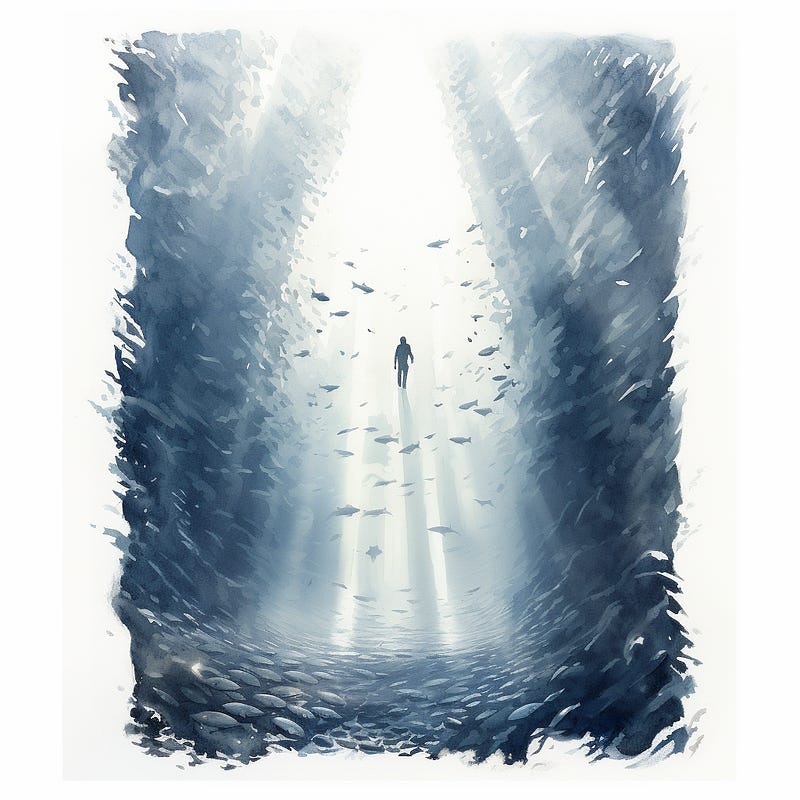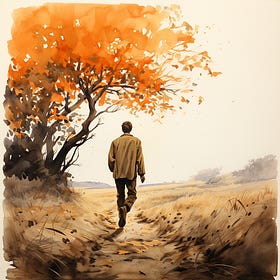Many believe that grief and the grieving process enter a person’s life only when a significant person or a beloved pet dies. However, we can feel grief due to the loss of many things in various ways.
For instance, when we lose our job, when a tree under which we used to sit with our father is cut down, or even after a tough childhood, we grieve for the happy childhood we never had. The intensity of pain varies, but the stages of grief remain consistent.
What should we expect during these times?
It’s worth knowing the emotional roller-coaster we might experience when we lose someone or something significant to us.
In my life, I’ve lost important people several times. After my grandparents, my partner also fell ill and left at the age of 28.
I can imagine how painful it is for those preparing to depart, unable to further help, love, or protect those they leave behind. This pain is equally shared by those who stay, who couldn’t assist, heal, or save. Having experienced this multiple times, I can confidently say it’s a hellish situation. Months of battling, oscillating between hope and despair, unavoidable conversations about death and the aftermath, and the profound pain of love torments both sides.
We all know that life on Earth continues after death. Those left behind cannot give up, but those departing wish to know for certain that their loved ones will be alright.
Grief is a lengthy process
Those attempting to shorten or suppress it will undoubtedly face severe challenges and prolonged pain. You have to traverse through it, experiencing every terrible and good moment. Surprisingly, there are plenty of the latter. For me, it took two years to process everything, navigating through each phase of grief sequentially…
First, the shock…
I was very polite to the empathetic paramedics when they said there was nothing left to do, but once they left, I stared blankly for long minutes.
Then, control…
I handled everything super efficiently. I never thought there would be so many details to consider for a funeral or the variety of urns to choose from. I got particularly irritated when selecting lace doilies. Who cares about the lace covering the urn???
Then came anger…
I remember pressing the quick dial on my phone, calling his number, even though I knew his mobile was off in the drawer at home. I shouted and cried in the car, cursing everything and everyone that came to mind. Some days were better, others infinitely worse, oscillating for months.
Then, goodbye and separation…
I spent much time alone, conversing with him by a white candle for hours. I revisited old photos and cried. A lot. Slowly, I began to feel how lucky I was to have known him and been loved by him, albeit in his introverted manner.
It was a tough two years, but now, I can love my husband wholeheartedly because pieces of my heart aren’t stuck in the past. For this, I’m eternally grateful.
To move forward after such a profound loss, I believe one must let themselves immerse in the pain. Deeply, agonizingly, and let themselves truly reach the bottom of the pit. Well, pit? Rather, the Mariana Trench. Only from there, and nowhere else, can one rebound. As long as one clings desperately to the steep cliffs of the trench, fearing the impending pain, starting anew is impossible. There’s no momentum to harness.
This awaits all of us who remain. I hope we have the courage to let ourselves sink into the pain and the strength to push off from the trench’s bottom when we’re ready!
– Eszter
Related Articles
What to Say When the Unspeakable Happens?
Emotions, the Language of Our Soul — Anger
Walk Through the Difficulties!
Home | Notes | Articles | Eszter’s Magic | Literary Bonbons | Short Stories and Guides | Beyond the Book | EWE Issues | Archive | About







